🎗️Lonny's War Update- October 567, 2023 - April 25, 2025 🎗️
- Mossad chief en route to Doha for meeting with Qatari PM on hostage deal efforts
Mossad chief David Barnea has taken off for Qatar, an Israeli source tells The Times of Israel.
According to Walla, he will meet Qatari PM Mohammed bin Abdulrahman Al Thani to discuss ongoing efforts to reach a hostage deal in Gaza.
The meeting appears to mark Barnea’s return to involvement in the hostage negotiations after he was replaced as lead negotiator by Strategic Affairs Minister Ron Dermer at Prime Minister Benjamin Netanyahu’s orders.
Dermer has been heavily criticized since assuming the role — publicly by hostage families who have accused him of blocking potential deals and privately by other members of Israel’s negotiating team who have reportedly said he doesn’t work with the necessary level of urgency.
No hostages have been released since Dermer took over the helm. link This is a good thing that Barnea is going to again be involved in the hostage negotiations. It would be even better if Dermer is removed but that is not likely to happen because Netanyahu wants his lapdog in charge to make sure that the negotiators won't do anything that Netanyahu doesn't want, such as agreeing to end the war.
- Family of hostage Omri Miran releases clip from Hamas propaganda video
The family of hostage Omri Miran approves the publication of a segment from a propaganda video released by Hamas yesterday.
“Today I turn 48 years old,” says Miran, whose birthday was on April 11, indicating that the video was filmed recently.
“This is the second birthday that I’m marking here — I can’t say ‘celebrating — in Hamas captivity,” he continues.”I’m no longer happy, after a year and a half. I miss my daughters very much, and my wife, and all my family and friends.
The content of the video is likely dictated by Miran’s captors.
“The situation here is very hard, it’s very hard for us,” he says. “Thank you to all the protesters, to all the people who want us to return home in peace. Do everything, everything so that we can return home now, as fast as possible.”
He directs his next remarks to freed hostage Keith Siegel, with whom he was held for part of his captivity.
“I want to ask Keith, my friend who was released, and all the other hostages who were already released, to go out to protest, to speak to the media, so that the entire country understands, so that everyone understands, how hard and terrible the situation is here,” says Miran, stressing that the hostages live “in constant fear” of IDF strikes.
“Only a deal, now, will bring us home,” he says, appealing to US President Donald Trump for assistance, as he is “probably the only person in the world strong enough” to make another deal. Hamas video of Omri Miran
- Bereaved Oct. 7 survivor, released hostage perform at March of the Living ceremony
Bereaved Kibbutz Be’eri survivor Daniel Weiss and released hostage Agam Berger perform onstage at the official ceremony for the March of the Living, with Berger playing a 150-year-old violin saved during the Holocaust.
Weiss, whose father was killed protecting the kibbutz on October 7 while his mother was murdered in Hamas captivity, plays guitar and sings “Oh guardian of Israel, guard the remnant of Israel,” which he also sang under the entrance to Auschwitz on Wednesday. Berger’s violin piece is the haunting melody from “Schindler’s List.”
The pair, backed by members of the official IDF Rabbinate choir, play the songs to the subdued applause of the crowd.
At the end of the performance, members of the delegations cry, “Bring them home now!” As they sit in the pouring rain at the ceremony, which is shortened due to the inclement weather.
After several survivors lead the crowd in singing ״Hatikva,״ IDF Cantor Shai Abramson and survivor Sarah Weinstein sing the Yiddish song “Oyfn Pripetchik” onstage during a lightning and thunderstorm.
🎗️Day 567 that 59 of our hostages in Hamas captivity
**There is nothing more important than getting them home! NOTHING!**
“I’ve never met them,But I miss them. I’ve never met them,but I think of them every second. I’ve never met them,but they are my family. BRING THEM HOME NOW!!!”
There is no victory until all of the hostages are home!אין נצחון עד שכל החטופים בבית
Red Alerts - Missile, Rocket, Drone (UAV - unmanned aerial vehicles), and Terror Attacks and Death Announcements
*
The Army announced the death of Major Assaf Kafri killed in battle in the Gaza StripaMAY HIS MEMORY BE A REVOLUTION!
The late Kafri, 26 years old from Beit Hashmonai, served as a tank driver in the assault brigade. Terrorists fired an anti-tank missile and simultaneously carried out sniper fire at the IDF force
The IDF spokesman this morning (Friday) allowed the publication that Acting Major Assaf Kafri, 26 years old from Beit Hashmonai, is the tank driver from the 79th Battalion of the Strike Brigade who fell last night in a battle in the northern Gaza Strip - his family has been updated.
In the incident in which the late Kafri fell, an officer from the Yalam unit and a reservist from the battalion were seriously injured. They were evacuated for medical treatment and their families were informed. Another soldier was taken to the Hadassah Ein-Kerem Medical Center by helicopter after he was injured in his hand. The hospital described his condition as mild to moderate.The great-grandmother of slain IDF reservist Master Sgt. (res.) Asaf Kafri, who was killed in fighting in northern Gaza yesterday, was attending a Holocaust Remembrance Day ceremony at the Bergen-Belsen concentration camp in Poland at the time of her great-grandson’s death, Kafri’s aunt tells Ynet.
Kafri’s grandmother, 96-year-old Holocaust survivor Magda Baratz, was visiting the site of the infamous concentration camp, which she survived in her youth, as a guest of honor. She traveled there with her grandson Hagai, Kafri’s father.
According to Ynet, Hagai only learned of his son’s death upon his return to Israel.
Speaking to the news outlet, Hadas says that Baratz viewed her return to Bergen Belsen, this time as a guest of honor at a remembrance event, as a “victory.”
“Asaf fell when his great-grandmother and family flew to the ceremony,” says Hadas. “She said that visiting the camp where she almost died was her victory. She managed to survive, came to Israel, and started a family and legacy.”
Kafri, 26, was killed by sniper fire in the Beit Hanoun area of Gaza, according to an initial IDF probe. Three other soldiers were injured in the same incident.
The former hostage spoke to AP and shed further light on Hamas' cruelty. "They asked us, 'How was the festival?' and then made gunshot sounds," he recounted. He said, "There were times I almost came to terms with death, but every day I told myself that in the end, I would be free." Regarding the hostages still held captive: "I'm afraid that if they're not released soon—they will likely die." Tal Shoham, who was released from Hamas captivity two months ago after 505 days in Gaza, spoke to the Associated Press about his harrowing ordeal. "There were moments I thought I wouldn’t live to see tomorrow," he said. "Many times, I said goodbye to life and tried to accept death. There are so many ways to die there."
His wife, Adi, their two children Yahal and Naveh, and three other family members were also kidnapped on October 7, 2023, and released a month later in the first hostage deal. Shoham (40), who also holds Austrian citizenship, spent half his captivity in apartments and the other half in tunnels. At times, he was bound, starved, beaten, and threatened with death. Initially, he didn’t even know his family was alive.
Shoham recounted that after his wife was freed in the first deal, a man identifying himself as a Hamas operative called her and warned her not to speak about her captivity—or they would murder her husband. That’s why, he emphasized in the AP interview, there are things he won’t discuss, to avoid endangering the remaining hostages.
Shoham was kidnapped from Kibbutz Be’eri, where he had gone to visit relatives. During Hamas’ attack, his family hid in a safe room, but the terrorists opened the window and used explosives in an attempt to break in, forcing them to surrender. Shoham said this decision saved their lives. He was thrown into the back of a vehicle and taken to Gaza, unaware of his wife and children’s fate. Before being separated from them, he told his son, now 9, that he didn’t know if they would survive. "I didn’t want to lie to him if these were our last moments," he said.Together at home. Tal Shoham after his release, with his wife Adi
Upon entering Gaza, a Hamas terrorist jumped onto the car roof, pointed a gun at Shoham, and ordered him to kneel. But he refused, saying, "I didn’t want to be murdered on their terms." Shoham said the terrorist had "murder in his eyes." He was first taken to an apartment in northern Gaza, where he was shackled in a room for weeks.
A month later, he was moved to another apartment where Aviatar David and Guy Gilboa-Dalal, abducted from the Nova festival, were also held. When he heard about their captivity conditions, Shoham felt "lucky" by comparison. "They were bound with tighter restraints and had plastic bags over their heads. They ate one pita a day," he said.
The three were held there for months and beaten daily. "Our captors mocked and humiliated us. They asked, 'How was the festival?' and made gunshot sounds," he recalled. They were forbidden from speaking, so they whispered to each other.
To communicate with his captors—and hopefully reduce the risk of being killed—Shoham learned Arabic in captivity and talked to them about his life in Israel. "One of them liked massages, so we rubbed his back every day in exchange for extra food like tuna, sardines, and even eggs," he said.Hamas made Guy Gilboa-Dalal and Aviatar David watch the release of other hostages
Shoham only learned his wife and children were alive after about 50 days in captivity, when his captors gave him a letter from Adi saying they were safe and would be released soon. He called this a rare act of kindness that gave him the strength to endure.
"When I came home, I wanted to eat everything and never felt full"
In June 2024, Shoham, David, and Gilboa-Dalal were moved to a tunnel they estimated was 30 meters underground, where Omri Miran was also held. Shoham said this happened after Operation Arnon, which rescued Noa Argamani, Almog Meir Jan, Andrey Kozlov, and Shlomi Ziv from Nuseirat.
"They shaved us, disguised us as Palestinians, and transported us in an ambulance with blindfolds," he said. The tunnels were "dark, humid, and hard to breathe in." They shared a 12-meter-long cell, slept on mattresses on the ground, and used a hole a meter away as their toilet. They showered roughly once every three weeks.
Shoham lost about 28 kg in captivity. He developed a severe leg infection that left him unable to walk for weeks. At one point, a doctor visited, gave him vitamins, and his condition improved.
What also helped him survive, he said, was focusing on what he could control. He practiced mindfulness techniques his psychologist wife had taught him and discussed his emotions with fellow hostages. "The only thing I had control over was my inner life," he said. "Every day, I told myself that in the end, I would be free."
Shoham was released two months ago with Omri Miran, while Avihai David and Guy Gilboa-Dalal remained behind. The last thing he told them was, "Be strong, don’t lose hope." He fears time is running out for the hostages and urged the government and international community not to tie their fate to a ceasefire deal. "I’m truly afraid that if they’re not released soon, they will likely die there," he said.
The former hostage said his healing process has been easier because his family can empathize with his suffering. His release helped them properly mourn victims of the October 7 massacre, including his wife’s father. "While I was captive, they were so focused on getting me back," he said. Since returning, Shoham has regained 16 kg. "When I came home, I wanted to eat everything and never felt full," he said. Recently, he’s tried returning to his pre-captivity intermittent fasting routine.
Though his leg hasn’t fully healed, Shoham considers himself fortunate because he doesn’t suffer from nightmares. He says his children keep him moving forward. "Hearing my kids call us 'Mom and Dad,' saying both names—it’s like music to my ears. As a family, we’re all healing now. But we’re doing it together." link
- Eli Shreiber's Emotional Speech at Auschwitz: "The Jewish People Sanctifies Life, Not Death - We Must Bring Everyone Back"
The former hostage stood before the crematoriums and called to "bring everyone back." "The Holocaust was unlike anything else - we will neither forget nor forgive," he declared. Regarding the 59 hostages still held by Hamas, he said: "We must not break the unwritten covenant between the state and its citizens - we must bring all the hostages home."Returned hostage Agam Berger with a Holocaust survivor at the March of the LivingHostage survivor Eli Sharabi, whose wife and daughters were murdered on October 7, spoke with a choked voice today (Thursday) near the crematorium at Auschwitz death camp - moments before learning the March of the Living was canceled due to stormy weather. He spoke alongside his brother Sharon - describing the connection burned into him between Holocaust memory and the horrors he experienced on October 7 and in Hamas captivity.Eli Sharabi and President Isaac Herzog at the March of the Living
"The Holocaust was unlike anything else - we will neither forget nor forgive," Sharabi said. "Our presence here is the victory of the Jewish spirit. The Jewish people will endure forever." He then called for the release of Gaza hostages: "The Jewish people sanctifies life, not death. We must not break the unwritten covenant between the state and its citizens - we must bring all the hostages home."March of the Living at Auschwitz
Sharabi continued: "I lost my wife and daughters on October 7. I endured horrors in enemy captivity but I chose life, and this gives me hope to rebuild my life each new morning." His brother Yossi Sharabi was murdered in Hamas captivity and his body remains held in Gaza.
Pro-Palestinian protest outside the March of the Living
"This human wall is far stronger than any ghetto walls," added his brother Sharon. "This wall isn't made just of flesh. It contains all necessary resources, the Jewish spirit - this wall cannot be toppled. As one people, we will demand accountability for the blood spilled on October 7 and in the Holocaust our grandparents endured. We won't give up, we won't surrender - as one people we will 'walk upright' as Eli said."
Sharabi concluded: "This human wall proves our enemies cannot break us. We will continue forward together - remembering, rebuilding, and redeeming our people." link
Ex-hostage Gadi Mozes says he’s drawing strength from taking part in March of the Living
Released hostage Gadi Mozes and his daughter Moran walk into Auschwitz-Birkenau as part of the March of the Living.
“The Holocaust is a Holocaust and October 7 was a disaster,” says Mozes. “We were hit hard, as a family, as a society, as a place, physically and emotionally.”
Mozes says that being on the March of the Living with the other families gives a lot of strength.
“There are 59 hostages and 14 from our kibbutz,” he says. “And that is more important than anything else.”
Visiting Auschwitz, ex-hostage Keith Siegel reflects on ‘collective fate’ of captives and their families
Released hostage Keith Siegel walks into Birkenau, ahead of this afternoon’s March of the Living ceremony, and says he feels very grateful to be given the opportunity to join the event with other hostages’ family members, released hostages and bereaved families.
“It creates a bond even before you meet people more in depth, because of the experience we experienced, all of us, on October 7 and before October 7, it’s something that gives me a feeling of collective fate,” says Siegel.
Two of the remaining 59 hostages in Gaza are Gali and Ziv Berman, who grew up in Kibbutz Kfar Aza, where Siegel, a dual American-Israeli citizen, has lived for decades.
“The kibbutz was much larger on October 7 than when we came in 1983,” he says. “Very often we’d see each other in the dining room before the kibbutz grew and was privatized. Meals were a daily social event, everybody knew everybody. So I know Gali and Zivi, his brothers and his parents. Today we’re at day 566 that the hostages have been in captivity.”
While in captivity, Siegel spent time with hostage Matan Angrest, who he last saw on February 20, 2024.
“That’s a long time,” he reflects.
He also spent time with hostage Omri Miran and another hostage, each separately, both known to be alive.
“I need to do anything I can to bring them home, to participate in the effort to bring the hostages home, to bring about the agreement, the deal that brought me home, me and 33 hostages, released in the last deal,” says Siegel.
Siegel and one of his three daughters, Ilan, walk along the train tracks of Birkenau, for the final ceremony of the March of the Living
- Footage from Gaza shows injured child in rubble, reportedly following Israeli airstrike; IDF looking into incident
Footage from Gaza shows an injured child among rubble, reportedly following an Israeli airstrike.
Osama Abu Rabee, a journalist in Gaza, published footage showing a wounded and bleeding child among the rubble of a building on Al-Yarmouk Street in the center of Gaza City.
The body of a man can be seen behind the child, who is calling for help.
Abu Rabee also claims that there are additional bodies of children on the scene of the strike.
According to reports from Gaza, the building was hit by an Israeli airstrike.
The Saudi Al-Arabiya channel reports that seven people were killed in the strike.
The IDF says it is looking into the incident.
- IDF chief says military will soon expand Gaza offensive unless there’s a hostage dealIDF Chief of Staff Lt. Gen. Eyal Zamir tells officers in the Gaza Strip today that if there is no hostage deal in the near future, the military will significantly expand its offensive against Hamas.
“We are continuing with the operational pressure and tightening the ring around Hamas as needed, and if we see no progress in the return of the hostages, we will expand our activities to an intense and even more significant move, until we reach the defeat [of Hamas],” Zamir says.
“Hamas is responsible for the start of this war. It now holds the hostages cruelly and is responsible for the difficult state of the population in Gaza. Hamas is mistaken when it comes to our abilities, intentions and determination, just like [Hezbollah chief Hassan] Nasrallah and his top command,” he adds.
- IDF issues evacuation warning for Beit Hanoun, Sheikh Zayed neighborhood in northern Gaza
The IDF issues an evacuation warning to Palestinians residing in Beit Hanoun and the Sheikh Zayed neighborhood in the northern Gaza Strip.
In a post on X, the IDF’s Arabic-language spokesman Col. Avichay Adraee publishes a map of the area that is to be evacuated, saying the warning comes in light of sniper attacks on troops and other activity by terror groups in the area.
Palestinians are called upon to head for Gaza City.
- IDF acknowledges it accidentally shelled UN facility, killing staff member in Gaza last month
The Israeli military acknowledges that troops mistakenly shelled a United Nations facility in central Gaza last month, killing a UN worker.
Until now, the IDF denied it had struck the UN guesthouse in Deir al-Balah on March 19.
The IDF’s high-level General Staff Fact-Finding Assessment Mechanism, an independent military body responsible for investigating unusual incidents amid the war, is looking into the event.
The mechanism’s initial findings were presented today to IDF Chief of Staff Lt. Gen. Eyal Zamir and UN representatives, the military says.
According to the findings, on March 19, an IDF tank operating in the area fired a shell at the building, following a “suspicion of enemy forces in it.” The investigation has found that the building was not identified by the tank crew as belonging to the UN.
Zamir has instructed the head of the mechanism, Maj. Gen. (res.) Yoav Har-Even, to conclude the probe in the coming days and present the full findings to the UN representatives.
The IDF says it “regrets this serious incident and continues to conduct thorough review processes to draw operational lessons and evaluate additional measures to prevent such events in the future.”
“We express our deep sorrow for the loss and send our condolences to the family,” the military says.
Gaza and the South
- Lebanon tells Iranian envoy to stay out of country’s domestic affairs
The Lebanese Foreign Ministry tells Iran’s ambassador to Lebanon, Mojtaba Amani, not to interfere with the country’s internal affairs, after he criticized efforts by the country to disarm Iran’s ally Hezbollah, according to Saudi news outlet Al Arabiya.
The ambassador was summoned to Beirut for a meeting with Lebanon’s Foreign Ministry Secretary-General Hani Chemaitelly, said Al Arabiya, citing a statement from the ministry.
Youssef Raggi, Lebanon’s Foreign Minister, said yesterday at a meeting of Arab Foreign Ministers in Cairo that Lebanon “reject[s] any foreign interference in our internal affairs. We support positive neutrality, mutual respect for sovereignty, and shared Arab interests.”
“At a time when the United States of America continues to supply the Zionist entity with the latest weapons and missiles, it prevents other countries from arming and strengthening their armies,” he wrote, adding that Iran is “fully aware of the danger of this conspiracy and its threat to the security of the peoples of the region. We warn others not to fall into the trap of the enemies.”
Lebanese President Joseph Aoun said Sunday that disarming the Iran-backed Hezbollah terror group is a “delicate” matter whose implementation requires the right circumstances, warning that forcing the issue could lead the country to ruin.
On Friday, Hezbollah chief Naim Qassem said the group “will not let anyone disarm” it, as Washington presses Beirut to compel the Shiite terror group to hand over its weapons.
- Hundreds of Syrian Druze clerics to visit Israel today for pilgrimage to sacred shrine
Hundreds of clerics from Syria’s Druze minority are heading to Israel where they will conduct a pilgrimage to a sacred shrine, the second such visit since longtime ruler Bashar al-Assad’s ouster last December.
The clerics from the esoteric, monotheistic faith, are to cross the border on foot, according to a Syrian official and a local news organisation, despite Israel and Syria being technically at war.
The delegation will visit the Nabi Shuaib shrine in northern Israel’s Galilee region, where an annual pilgrimage is held from April 25-28 each year.
Abu Yazan, the official from Hader on the Syrian Golan Heights, says that 400 clerics from his town and from the Damascus suburb of Jaramana will head to Israel after the Israeli authorities gave their approval.
Asking not to be identified by his full name, he says the trip is “purely religious” in nature.
Suwayda24, a news organisation from nearby Sweida province, says some 150 Druze clerics from that area would also participate.
The group notified the Syrian government of its plan to go to Israel, though it received no response, the website adds.
Unlike during a smaller visit to the shrine last month, the clerics will spend the night in Israel this time.
Abu Yazan, who is one of the participants, says that “we requested to stay for a week to visit the shrine” and other members of the religious community “but the Israeli side only authorised one night.”
The Druze are mainly divided between Syria, Israel and Lebanon.
They account for about three percent of Syria’s population and are heavily concentrated in the south.
Israel seized much of the strategic Golan Heights from Syria in a war in 1967, later annexing the area in 1981 in a move recognized by the US but not by most of the international community.
Following the ouster of Assad, Israel carried out hundreds of airstrikes on Syria and sent troops into the demilitarized buffer zone of the Golan in southwest Syria.
Israeli authorities have since voiced support for Syria’s Druze, amid mistrust of the country’s new Islamist leaders.
- Sources say 2 Palestinians injured in overnight settler attack; no Israelis arrested
Settlers entered a Palestinian village in the northern Jordan Valley last night, buildings were set on fire, and two were injured by gunfire, according to a Palestinian resident, offering new details about the incident.
A group of settlers entered the Palestinian village of Bardala in the northeastern West Bank last night around 10 p.m., according to a security source speaking with The Times of Israel. The source says the settlers assaulted residents, set structures on fire, and opened fire at Palestinians. Later on, IDF forces came and opened fire to disperse the settlers and the Palestinians.
Footage from the night shows several buildings ablaze. Mahyoub Foqahaa, a resident of Bardala, tells The Times of Israel that two young men from the village sustained light injuries to their legs from gunfire by the settlers and were taken to a hospital for treatment.
Foqahaa adds that several Palestinians were detained briefly but not arrested. No Israeli suspects have been detained in connection with the incident. So far, no response has been received from the IDF. video
IDF, Border Police say they arrested terror cell head in West Bank’s Balata refugee camp
Undercover Border Police officers and IDF troops say they arrested the head of a terror cell in the West Bank refugee camp of Balata near Nablus, following precise intelligence provided by the Shin Bet.
According to a joint statement, the suspect was apprehended after a brief exchange of fire. A second wanted man involved in terrorist activity was also detained during the operation.
Security forces say violent riots broke out during the arrest, prompting them to respond with live fire.
There were no reports of Israeli injuries.
- 4 Palestinians released in recent hostage deal rearrested in Qalqilya overnight
Palestinian media reports that Israeli troops arrested four Palestinians last night in the West Bank city of Qalqilya who were released as part of the recent ceasefire and hostage deal between Israel and Hamas.
The detainees — three men and one woman — are identified as Abdallah Al-Walwil, Sameh Shubaki, Maysara Afaneh, and Margaret Al-Ra’i.
There has been no official response from Israel regarding the reports.
This is the first reported instance of Israel rearresting individuals released in the recent deal.
Israel released close to 2,000 Palestinian security prisoners during a ceasefire between January and March, in exchange for the release from Gaza of 30 hostages and the bodies of eight slain captives.
- Police say armed terror operative apprehended in Qalqilya, in the West Bank
The Israel Police says that an armed terror operative affiliated with Palestinian Islamic Jihad has been arrested in Qalqilya, in the West Bank, during a joint operation with the IDF, Shin Bet, and the police’s Lahav 433 major crimes unit.
In a statement, the police say that the detained terror suspect had been en route to carry out “operational activities” at the time of his arrest.
During the joint raid on the terror cell, police say that troops seized several M16 rifles.
In addition to his affiliation with the Islamic Jihad, police say that the detained terror operative has also cooperated with Hamas in the West Bank. VIDEO Of the apprehension and the weapons found in the car
- Politics and the War and General News
- Democratic lawmaker to introduce bill codifying Biden’s sanction regime against violent settlers
A Democratic lawmaker announces that he will be introducing Congressional legislation next week that would codify former US president Joe Biden’s sanctions regime against violent Israeli settlers in the West Bank.
The sanctions were reversed by US President Donald Trump on his first day in office.
Settler attacks on Palestinians have continued unabated since, including in the past day when groups of Israelis hurled stones and set fire to property in several Palestinian villages throughout the West Bank. As is often the case in such incidents, no suspects have been arrested.
The lack of accountability is what spurred Biden’s decision to sign an executive order last year that instituted the sanctions regime on the ground that such attacks were destabilizing the West Bank and a threat to US national security interests in the region.
US Representative Jerry Nadler announces the planned legislation during a rally in New York organized by left-leaning Israeli and Jewish activists against the visit of far-right National Security Minister Itamar Ben Gvir.
Nadler cites figures from the settlement watchdog Peace Now that settlers have seized 14% of West Bank territory through “violent tactics such as harassing, intimidating and targeting Palestinian communities.”
“These settlers seized large areas of land from over 60 displaced Palestinian communities and have set up new Israeli outlooks current Israeli government,” Nadler says.
 FILE – House Judiciary Committee Chairman Jerrold Nadler, D-N.Y., meets with reporters at the Capitol in Washington, Dec. 9, 2021. Nadler is Democrat candidate for New York’s 12th Congressional District. (AP/J. Scott Applewhite)
FILE – House Judiciary Committee Chairman Jerrold Nadler, D-N.Y., meets with reporters at the Capitol in Washington, Dec. 9, 2021. Nadler is Democrat candidate for New York’s 12th Congressional District. (AP/J. Scott Applewhite)He laments the backing that such violent settlers have been receiving from the current Israeli government. The top police commander in charge of the West Bank is currently under investigation for ignoring settler attacks to curry favor in the eyes of Ben Gvir, whose ministry oversees the police.
“When I return to Washington on Monday, I will be introducing the West Bank Violence Prevention Act, which would codify and enshrine President Biden’s executive order into law,” Nadler declares to cheers from the crowd.
The legislation is almost certain to fail, given the Republican majority in Congress. link This is an important move as Trump's cancellation of the sanctions was an additional green light to these extreme settler terrorists. The cancellation, along with the defense minister Katz' cancellation of administrative detention for Jewish terrorists were all viewed as further endorsement of the continuing and growing Jewish terrorists activities against the Palestinians. The strongest endorsement and encouragement of these attacks are by the criminally convicted minister of interior 'insecurity' who has the mandate over the Israeli police and has given explicit orders not to intervene in these attacks. Our corrupt, failed, extremist government enables these attacks, there is no accountability, no arrests, no charges against these terrorists, so there are no court cases or convictions. The amount of attacks has grown exponentially and it appears to be happening now on a daily basis. If this bill passes, the sanctions will be legally in place and Trump won't be able to reverse it, unless he vetoes the bill.
- US: Ben Gvir call to bomb Gaza food warehouses ‘completely contradicts’ our effort to get aid into Strip
US State Department spokesperson Tammy Bruce appears to criticize National Security Minister Itamar Ben Gvir’s call for the IDF to bomb food storage facilities in Gaza in order to pressure Hamas to release Israeli hostages.
Asked during a press briefing whether the Trump administration backs the idea, which Ben Gvir said is supported by senior Republicans he met at Trump’s Mar-a-Lago resort this week, Bruce initially says that she won’t comment on the matter as the far-right Israeli leader’s claim is unconfirmed.
But then she says that the proposal is “in complete contradiction to the nature of our commitment to getting food aid and assistance” into Gaza.
“My goodness, the work over these 100 days to get that first ceasefire to get that aid into that area, it’s difficult,” she adds.
It was unclear whether the rare public criticism of an Israeli official by the Trump administration was intentional, as Bruce subsequently stressed that she would not further comment on Ben Gvir’s remarks.
“What I will do is reiterate, certainly, our commitment to Israel, our commitment to creating a better framework in Gaza, stopping the slaughter, getting aid and food in — that has been a north star for this administration,” Bruce continues.
Asked whether that means the US is adopting the Israeli position that aid will only be allowed to resume if a new hostage release and ceasefire deal is reached, Bruce declines to answer.
She then reads what appears to be a prepared and vetted statement from the administration.
“The United States supports the flow of humanitarian aid with safeguards to ensure assistance is not diverted, looted or misused by terrorist groups such as Hamas and the Palestinian Islamic Jihad,” Bruce states.
The talking point notably avoids directly criticizing Israel on the matter.
- Trump poised to offer Saudis over $100 billion weapons package, sources tell Reuters
The United States is poised to offer Saudi Arabia an arms package worth well over $100 billion, six sources with direct knowledge of the issue tell Reuters, saying the proposal is being lined up for announcement during US President Donald Trump’s visit to the kingdom in May.
The offered package comes after the administration of former president Joe Biden unsuccessfully tried to finalize a defense pact with Riyadh as part of a broad deal that envisioned Saudi Arabia normalizing ties with Israel.
The Biden proposal offered access to more advanced US weaponry in return for halting Chinese arms purchases and restricting Beijing’s investment in the country. Reuters cannot establish if the Trump administration’s proposal includes similar requirements.
The White House, Pentagon and Saudi government communications office do not immediately respond to requests for comment. In his first term, Trump celebrated weapons sales to Saudi Arabia as good for US jobs.
Lockheed Martin could supply a range of advanced weapons systems, including C-130 transport aircraft, two of the sources say. One source says Lockheed would also supply missiles and radars.
RTX Corp, formerly known as Raytheon Technologies, is also expected to play a significant role in the package, which will include supplies from other major US defense contractors such as Boeing, Northrop Grumman Corp and General Atomics, say four of the sources.
All the sources decline to be named due to the sensitivity of the matter.
Lockheed Martin, RTX, Northrop and General Atomics decline to comment. Boeing doesn’t immediately respond to a request for comment.
Reuters cannot immediately establish how many of the deals on offer were new. Many have been in the works for some time, two of the sources say. For example, the kingdom first requested information about General Atomics’ drones in 2018, they say. Over the past 12 months, a deal for $20 billion of General Atomics’ MQ-9B SeaGuardian-style drones and other aircraft came into focus, according to one of the sources.
Several executives from defense companies are considering traveling to the region as a part of the delegation, three of the sources say.
Acronyms and Glossary
ICC - International Criminal Court in the Hague
IJC - International Court of Justice in the Hague
MDA - Magen David Adom - Israel Ambulance Corp
PA - Palestinian Authority - President Mahmud Abbas, aka Abu Mazen
PMO- Prime Minister's Office
UAV - Unmanned Aerial vehicle, Drone. Could be used for surveillance and reconnaissance, or be weaponized with missiles or contain explosives for 'suicide' explosion mission
Join my Whatsapp update group https://chat.whatsapp.com/IQ3OtwE6ydxBeBAxWNziB0
Twitter - @LonnyB58 Bluesky - @lonny-b.bsky.social
Twitter - @LonnyB58





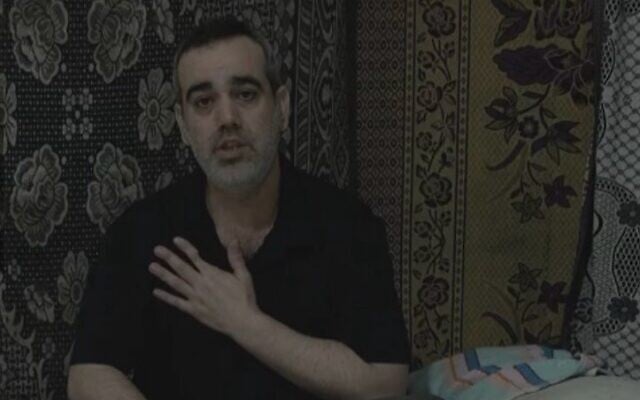
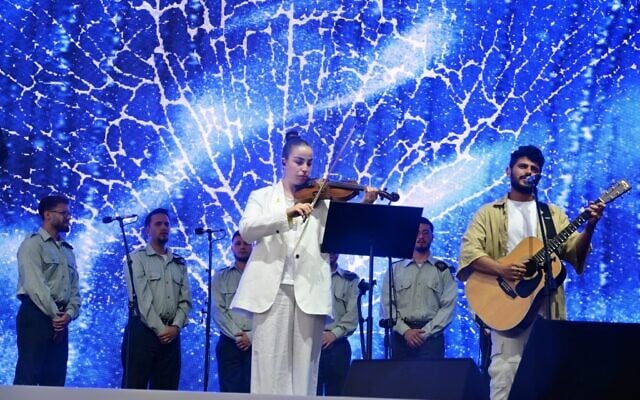
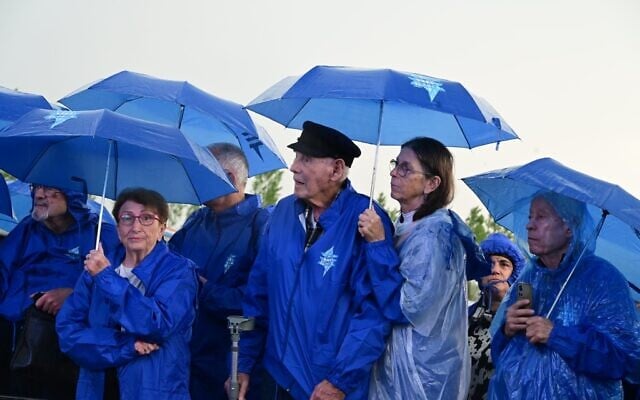









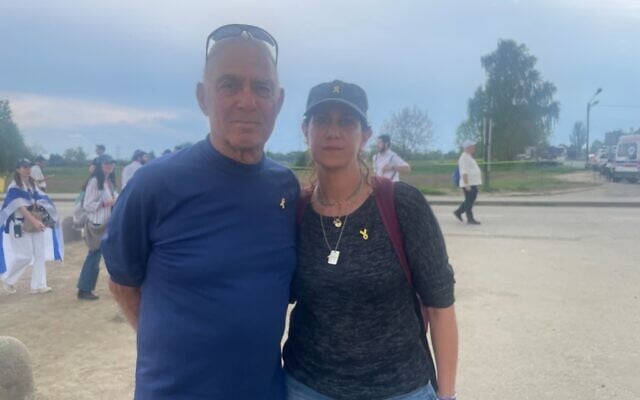

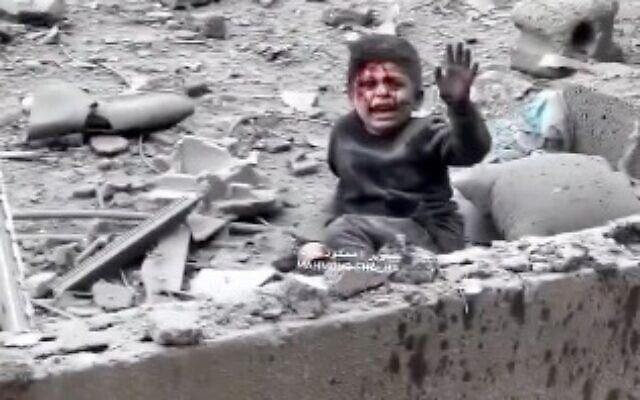

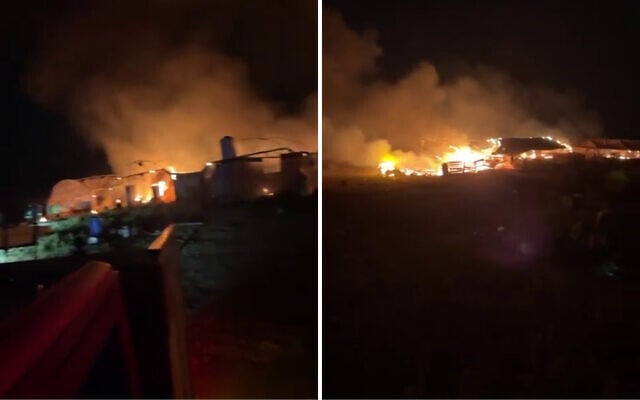
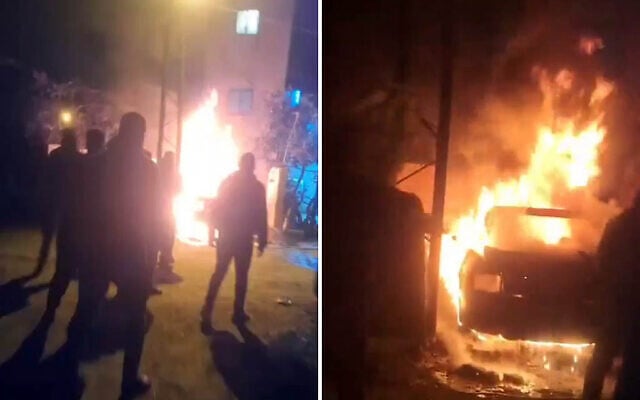




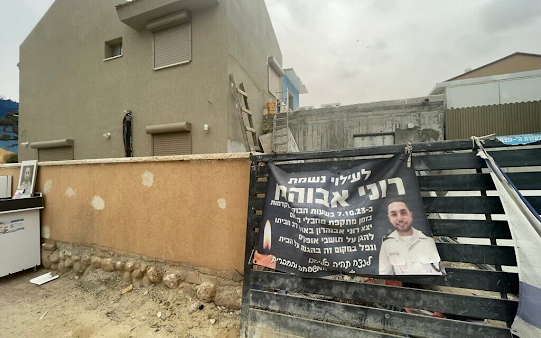




Comments
Post a Comment